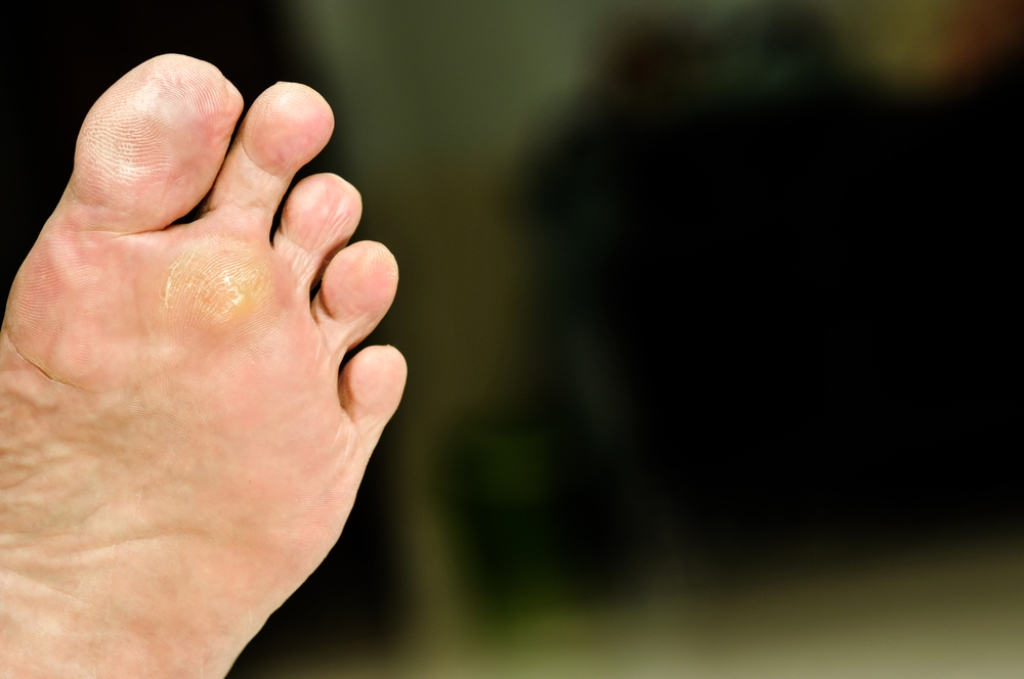
Plantar warts and corns are two distinct, yet similar, foot conditions that often get confused with one another. Plantar warts are growths on the feet spread by the human papillomavirus, whereas corns are thickened areas of the skin that grow in response to pressure. In order to determine whether an area of the feet is technically a plantar wart or a corn, a medical professional may examine the location of the affected area of the skin. For example, corns are usually adjacent to bones whereas this is not always necessarily the case with a plantar wart. Also, a medical professional may perform a squeeze test where the sides of the affected skin are gently squeezed together. If the patient feels no pain, this might mean that they have a corn rather than a plantar wart. If you believe that you might have a plantar wart or a corn, it is suggested that you contact a podiatrist for treatment.
Plantar warts can be very uncomfortable. If you need your feet checked, contact Scott Samera, DPM from Samera / Foot + Ankle. Our doctor will assist you with all of your foot and ankle needs.
About Plantar Warts
Plantar warts are the result of HPV, or human papillomavirus, getting into open wounds on the feet. They are mostly found on the heels or balls of the feet.
While plantar warts are generally harmless, those experiencing excessive pain or those suffering from diabetes or a compromised immune system require immediate medical care. Plantar warts are easily diagnosed, usually through scraping off a bit of rough skin or by getting a biopsy.
Symptoms
- Lesions on the bottom of your feet, usually rough and grainy
- Hard or thick callused spots
- Wart seeds, which are small clotted blood vessels that look like little black spots
- Pain, discomfort, or tenderness of your feet when walking or standing
Treatment
- Freezing
- Electric tool removal
- Laser Treatment
- Topical Creams (prescription only)
- Over-the-counter medications
To help prevent developing plantar warts, avoid walking barefoot over abrasive surfaces that can cause cuts or wounds for HPV to get into. Avoiding direct contact with other warts, as well as not picking or rubbing existing warts, can help prevent the further spread of plantar warts. However, if you think you have developed plantar warts, speak to your podiatrist. He or she can diagnose the warts on your feet and recommend the appropriate treatment options.
If you have any questions, please feel free to contact our office located in Lake City and Branford, FL . We offer the newest diagnostic and treatment technologies for all your foot care needs.




